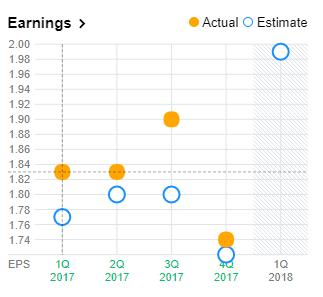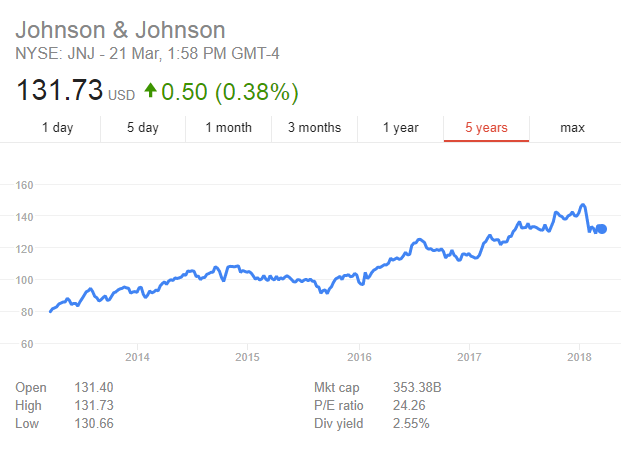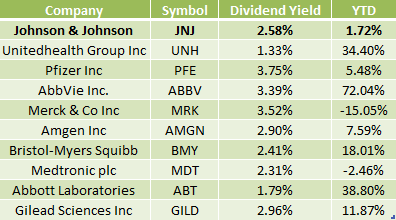Small-Cap Stock Performers: Progressive Care’s RXMD Still Leading the Pack
As the broader market starts to show evidence of topping-out, many investors have switched to small-cap alternatives are a potential driver of portfolio growth.
One of the names that continues to stand out from the pack is South Florida healthcare services and technology company Progressive Care, Inc. (OTCMKTS: RXMD), which has attracted a great deal of attention after the stock saw a price spike of 1,150% in the the period spanning from February to March. Valuations jumped from $0.02 in January to $0.25 in March 2018 – and this has helped the stock’s post rallies of 250% year-to-date.
It almost goes without saying but this means that RXMD has strongly outperformed the market (as the S&P 500 is showing gains of only 2% for this year). But can these impressive trends continue? Here, we will look at some of the factors driving growth for Progressive Care and its businesses.
RXMD Stock Performance Overview
One of the central reasons RXMD stock has gained so much attention (and its increase in trading volume) has been the rise in prescriptions filled during the first-quarter of this year. For the period, Progressive Care reported an increase of 24% in prescriptions filled (on an annualized basis). In February alone, the company filled $470,000 in prescriptions and generated fees of $20,000 (which was a 200% gain relative to the year-ago figure). These are stellar gains, no matter how you view the numbers.

RXMD Financial Outlook
RXMD performed well during the quarter ending March 31st, 2018. Revenues came in at $1.9 million (which was the largest revenue generation in any single month in the company’s history). Net revenues of $5 million were an increase of 7.36% from the year-ago period. Overall, the revenue figures have jumped from $9 million in 2013 to $20 million in 2017. This is an impressive performance for a company with only 50 employees.
RXMD filled in 64,000 prescriptions in Q1 2018, and the company’s total assets have increased by 49% relative to Q1 2017. Operating cash flow went from $-8,641 to a whopping $309,827 (+3,000%) for the period. These numbers have created a healthy balance sheet – and this shows the stock is set to bring in massive yields for its shareholders.
Progressive Care is currently licensed in 10 states, with more licenses currently in progress. This is clear evidence that the company is continuing to build its brand and build on its prior accomplishments. In December 2017, RXMD was listed on the OTCQB – and there is scope for the stock to be listed on the NASDAQ in the future. With its subsidiaries Smart Medical Alliance, Inc. and PharmCo, LLC, RXMD now stands strong with its four central pillars:
- Expertise in healthcare
- Patient care
- Pharmaceutical management
- Customer service
The recent quarter was a momentous period due to the following achievements:
- Introduction of Bitcoin to its payment platform
- Record-breaking numbers in terms of its financial strength
- Plans made to acquire Touchpoint RX pharmacy in Palm Beach County
- Price target upgraded to $0.35 per share by the investor analyst SeeThruEquity
For 2018, RXMD has set a revenue goal of $22 million along with monthly prescription numbers of 25,000. With its current market capitalization of $35 million and a substantial cash balance, RXMD is set to become a favored growth stock for prudent investors.
Rising Industry Sectors
For investors looking to gain entry into the rising healthcare industry, it looks likely that Progressive Care’s RXMD will continue leading the pack. The level of momentum that has been present in the stock is rare, as there are not many industry sectors that can reasonably expect to grow more than 300% in the next few years.
Great potential for growth in this sector comes from the fact that regulatory approval processes has been streamlined over the last few years. Many states are considering taking things in this direction, and this has made sales predictions increasingly optimistic for the company. Throughout the sector as a whole, RXMD remains attractive given its growth prospects and recent pullback to pre-breakout levels. For these reasons, the stock looks likely to gain on its bullish momentum in the months ahead.




